Login
Registration enables users to use special features of this website, such as past
order histories, retained contact details for faster checkout, review submissions, and special promotions.
order histories, retained contact details for faster checkout, review submissions, and special promotions.
Forgot password?
Registration enables users to use special features of this website, such as past
order histories, retained contact details for faster checkout, review submissions, and special promotions.
order histories, retained contact details for faster checkout, review submissions, and special promotions.
Quick Order
Products
Antibodies
ELISA and Assay Kits
Research Areas
Infectious Disease
Resources
Purchasing
Reference Material
Contact Us
Location
Corporate Headquarters
Vector Laboratories, Inc.
6737 Mowry Ave
Newark, CA 94560
United States
Telephone Numbers
Customer Service: (800) 227-6666 / (650) 697-3600
Contact Us
Additional Contact Details
Login
Registration enables users to use special features of this website, such as past
order histories, retained contact details for faster checkout, review submissions, and special promotions.
order histories, retained contact details for faster checkout, review submissions, and special promotions.
Forgot password?
Registration enables users to use special features of this website, such as past
order histories, retained contact details for faster checkout, review submissions, and special promotions.
order histories, retained contact details for faster checkout, review submissions, and special promotions.
Quick Order
PathPlusTM APOE / Apolipoprotein E Antibodies
Apolipoprotein E (APOE) is a main apoprotein of the chylomicron that binds to a specific receptor on liver cells and peripheral cells. It functions in fat metabolism and is thought to be involved in the progression of Alzheimer’s disease and cardiovascular disease. It is an essential protein for the normal catabolism of triglyceride-rich lipoprotein constituents. Mutations in APOE result in familial dysbetalipoproteinemia, or type III hyperlipoproteinemia (HLP III), in which increased plasma cholesterol and triglycerides are the consequence of impaired clearance of chylomicron and VLDL remnants. APOE mutations are also implicated in atherosclerosis, multiple sclerosis, and impaired hippocampal development and cognitive function. In immunohistochemistry of normal tissue, APOE has cytoplasmic and plasma positivity in renal tubules, Leydig cells, hepatocytes, the adrenal gland, and in subsets of neurons throughout the brain.
References: Neurology. 63 (10): 1898–901, PMID: 15557508; Science. 240 (4852): 622–30, PMID: 3283935; Science. 240 (4852): 622–30, PMID: 3283935; Science. 261 (5123): 921–23. doi:10.1126/science.8346443. PMID 8346443
7 PathPlusTM Antibodies
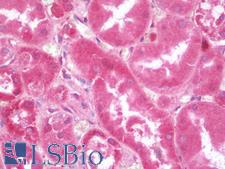
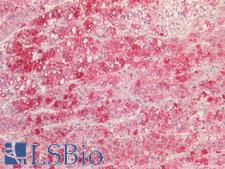
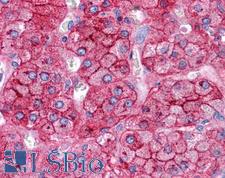
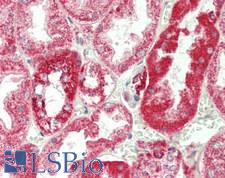
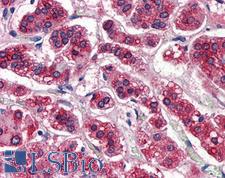
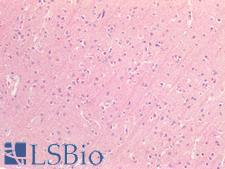
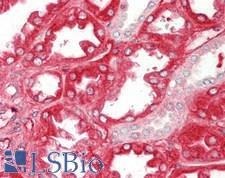
☰ Filters
Products
Antibodies
(7)
Type
Primary
(7)
Target
APOE / Apolipoprotein E
(7)
Reactivity
Human
(7)
Mouse
(2)
Rat
(2)
Application
IHC
(5)
IHC-P
(7)
WB
(6)
Flo
(1)
ELISA
(5)
ID
(1)
IF
(2)
IP
(2)
Peptide-ELISA
(1)
Host
rabbit
(3)
mouse
(1)
goat
(3)
Product Group
PathPlus Neuro
(7)
Isotype
IgG
(3)
IgG1,k
(1)
Clonality
monoclonal mc
(1)
polyclonal pc
(6)
Clone
4E4
(1)
Format
Unconjugated
(7)
Epitope
N-Terminus
(1)
aa100-150
(1)
aa305-317
(1)
Publications
No
(7)

Neuroscience
APOE / Apolipoprotein E Rabbit anti-Human Polyclonal Antibody
Mouse, Rat, Human
ELISA, IF, IHC, IHC-P, WB
Unconjugated
0.05 mg/$545

Neuroscience
APOE / Apolipoprotein E Goat anti-Human Polyclonal (aa305-317) Antibody
Human
IHC-P, Peptide-ELISA, WB
Unconjugated
50 µg/$375

Neuroscience
APOE / Apolipoprotein E Rabbit anti-Human Polyclonal (N-Terminus) Antibody
Mouse, Rat, Human
IHC, IHC-P, WB
Unconjugated
100 µl/$375

Neuroscience
APOE / Apolipoprotein E Mouse anti-Human Monoclonal (aa100-150) (4E4) Antibody
Human
ELISA, IHC, IHC-P, IP, WB
Unconjugated
0.1 ml/$375

Neuroscience
APOE / Apolipoprotein E Goat anti-Human Polyclonal Antibody
Human
ELISA, IHC, IHC-P, WB
Unconjugated
50 µg/$375

Neuroscience
APOE / Apolipoprotein E Rabbit anti-Human Polyclonal Antibody
Human
ELISA, IF, IHC-P
Unconjugated
50 µg/$375

Neuroscience
APOE / Apolipoprotein E Goat anti-Human Polyclonal Antibody
Human
ELISA, Flo, ID, IHC, IHC-P, IP, WB
Unconjugated
0.5 mg/$375
Viewing 1-7
of 7
product results











